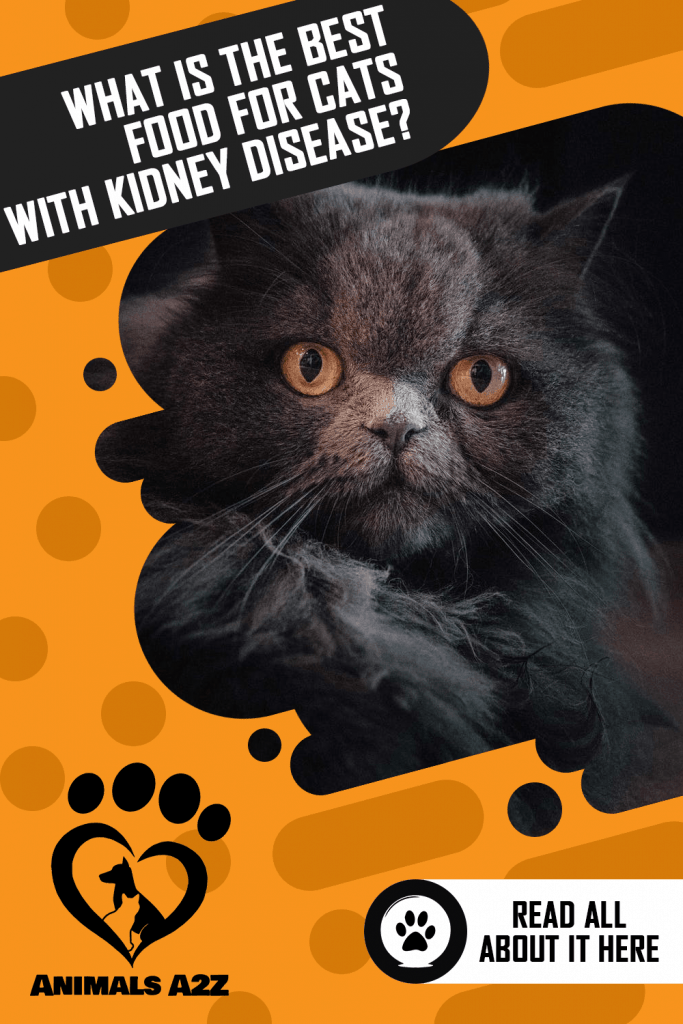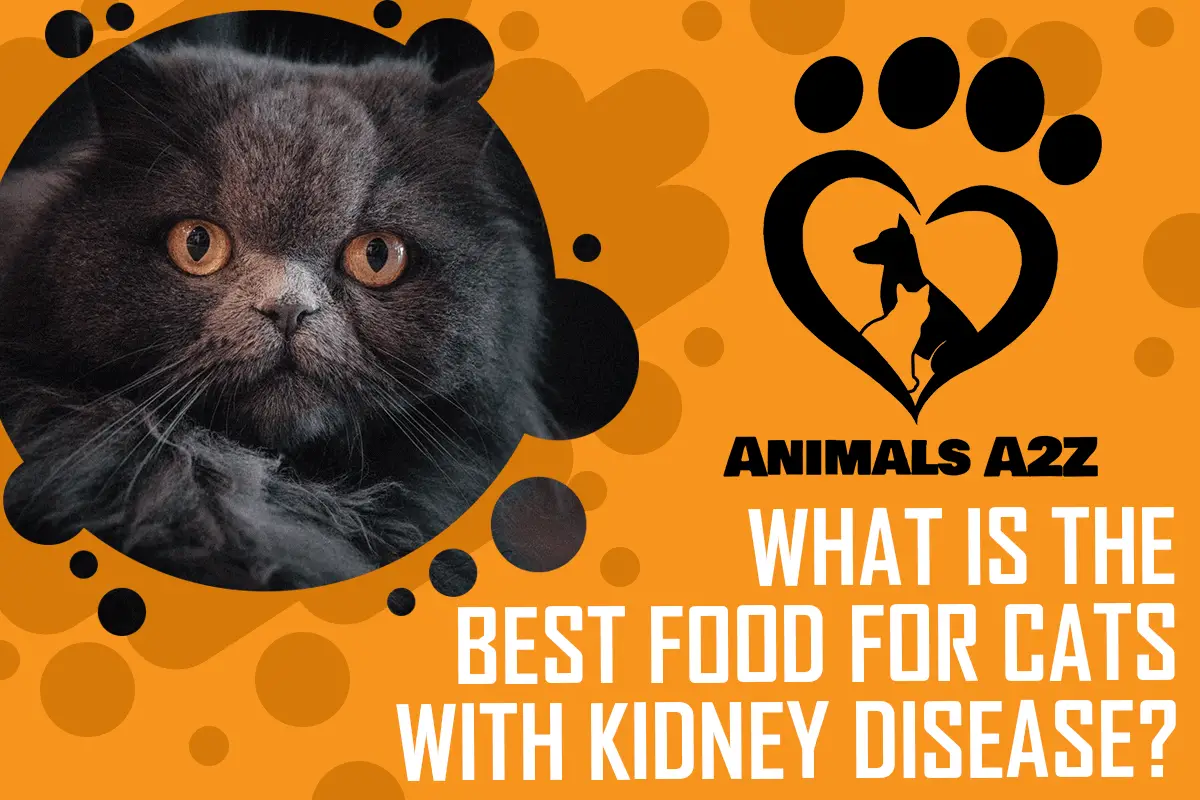Kidney disease is very common in cats. Most of the time, kidney disease can quickly develop due to exposure to antifreeze or infection. Treatment and symptoms of kidney disease usually vary depending on specific cases but a change in diet can help them eventually. Good nutrition plays a very important role in managing kidney disease in cats.
Table of Contents
Understanding CKD or Chronic Kidney Disease in Cats
CKD is considered as the most common kidney disease in cats. Normally, waste products are filtered by the kidneys out of the blood and then excreted in the urine. However, cats with kidney disease end up accumulating their waste products in their bloodstream due to the breakdown of filtering process.
That is why nutrition plays a very important role in the diet of your cat with kidney disease. There are 4 main goals when managing chronic kidney disease in cats:
- Control clinical signs that are associated with the accumulation of waste products in blood stream
- Sustain adequate nutrition
- Minimize problems with the right mineral and fluid balance
- Slow or modify the progression of kidney disease
Good nutrition actually addresses all these main goals well. Commercial diets for CKD-suffering cats are developed in order to prioritize these major goals. When you’re going to compare normal adult cat food maintenance, a cat’s kidney support diet often contains less phosphorus, sodium, and protein, as well as have an increased content of omega3 fatty acids. Experts say that these diets are especially formulated to aid cats with chronic kidney disease avoid metabolic acidosis.
Why Diet is Very Crucial in Cats with Kidney Disease
The kidneys play a lot of roles in the body. Some of these important roles include conserving water and removing waste from the bloodstream. The moment kidney function declines, toxic waste products such as phosphorous and urea start to back up and this can make your cat feel terrible. Aside from that, poor kidney function can also lead to severe dehydration of your cat since more water is lost in his urine.
Fortunately, these problems can be partially addressed with the right diet. Foods that contain high amount of water can help a lot in preventing dehydration. Also, when cats eat foods made from less amounts of good quality protein, chances are they produce less phosphorous and urea, which needs to be eliminated.
Nutritional Requirements for Cats with Chronic Kidney Disease
Water
One consequence of CKD is the kidney’s decreased ability to concentrate the urine. To continue to remove toxins from the body despite dilute urine, the body eventually compensates through stimulating greater thirst. As a cat owner, it’s critical for you to supply him an unlimited fresh water supply. Canned foods can also help a lot in increasing the moisture intake of your cat. In order to encourage your cat to have more water intake, it’s best to change the water of your cat several times a day. Cleaning your cat’s water bowl regularly and consider using a running water fountain can help in increasing your cat’s interest in drinking water.
Protein
The decrease in dietary protein can also slow the progression of kidney disease through decreasing the kidney’s workload in excreting protein waste products. The lesser the protein, the lesser the need for the protein excretion itself through the kidney’s filtration mechanism. This helps a lot in preserving kidney function. Studies have shown that the recommended protein range for cats with chronic kidney disease is 28 to 35%. However, if protein intake is low, the kidney disease itself will begin breaking down muscle mass.
Sodium
The dietary sodium levels are also mildly restricted in order to reduce the kidneys’ workload. In turn, this will help in maintaining a reasonable blood pressure.
Phosphorus
Limiting the amount of phosphorus in the diet of a cat with kidney disease has been proven to aid in delaying the progression of disease, even though the specific mechanism is unknown. Also, it serves to lessen the effects of kidney’s renal secondary hyperparathyroidism. Since the content of phosphorus is related to the content of protein, it’s impossible to achieve lower phosphorus level consumption without limiting the consumption of protein.
Omega3 Fatty Acids
This helps in reducing inflammatory compound production which can lead to oxidative stress of the diseased kidney’s tissue. Therefore, Omega3 fatty acids can contribute in slowing the progression of chronic kidney disease by reducing the leakage of protein through the kidneys.
[crp]
Common Questions About What Food is Best for Cats with Kidney Disease
What Food is Good for Cats with Kidney Problems?
When your cat is in early stage of kidney disease, they usually survive when fed with an appropriate and high nutritional content over-the-counter cat food. Canned foods are actually great since they contain more water compared to dry cat foods. However, you still have to make sure that the content is made from quality ingredients.
Is Chicken OK for Cats with Kidney Disease?
Chicken meat is not bad for cats when fed in moderation. Kidney support diets that are commercially available tend to be palatable since it’s very important for cats to eat in such a way that can help in slowing the kidney disease’s progression. So, if needed, you can also include low sodium chicken broth, tuna juice, or water as it can help increase acceptance and flavor.
Is Tuna Bad for Cats with Kidney Problems?
Most cats are fond of tuna juice and canned tuna. While tuna is okay for cats as a treat or in moderation, giving them canned tuna too much can be bad. Fish is a good source of protein, however, there are some reasons why canned tuna that are human grade can cause several health issues for your cat. Aside from that, tuna is high in protein and if your cat has kidney disease, you should avoid giving him high protein diet. But you can also use tuna juice to add flavor to your cat’s diet.
Conclusion
When your cat isn’t eating enough in order to maintain a healthy weight, then that particular food is still failing to meet his nutritional needs even if you think it’s a good choice. In order to solve this, you can try different brands of prescribed over-the-counter food or kidney diet food. However, if you want to cook food for your cat, then a homemade cat diet may also be a great option. Usually, homemade foods are tasty which will help improve a cat’s appetite. Lastly, bear in mind that your veterinarian can help you come up with the right formulation and diet for your cat with kidney disease. It’s very important to maintain an adequate calorie density to support a good condition of the body, thus, regular weigh-ins and food portion calculations are very important.


